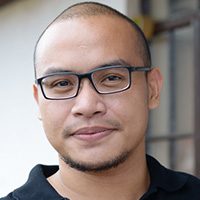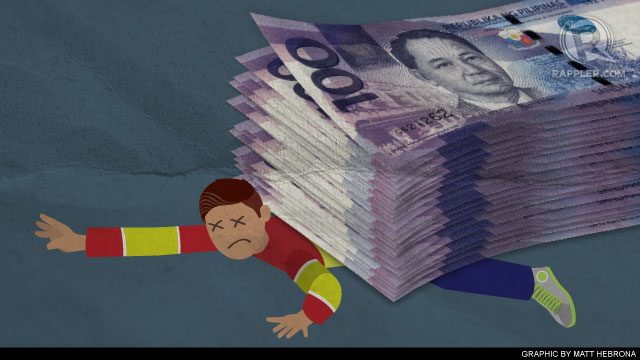SUMMARY
This is AI generated summarization, which may have errors. For context, always refer to the full article.

After our last discussion about how much candidates can lawfully spend for the 2016 elections, let me touch on some important issues relating to campaign finance, particularly those common errors committed by candidates.
When the campaign period started last February 9, the Commission on Elections (Comelec) chief reminded candidates that, as in a taxi meter, their expenses started running and would be expected to stay below the spending cap imposed by law.
1. Not filing a report when didn’t spend own money or when they lose
One the most common campaign finance-related errors committed by candidates is failing to file a Statement of Contribution and Expenditure (SOCE) that contains a “full, true and itemized statement of all contributions and expenditures” within 30 days after the day of the election.
In 2013 alone, 4,677 candidates failed to file their SOCEs, with nearly 600 candidates facing perpetual disqualification for having failed to file their SOCEs at least twice.
Expectedly, the most common excuse is not knowing about such requirement to file a report. Another culprit is the misconception that there is no need to file the SOCE when they lose the election or when they have not actually spent their personally money for the campaign.
Unfortunately, Republic Act Number 7166, the law governing campaign finance, does not admit these as exceptions. The law says “every candidate” – pertaining to both winning and losing candidates, and without qualification as to whether that candidate has actually spent any money for the campaign. If indeed the candidate did not spend even a single cent, he should nonetheless file a SOCE that declares zero expenditure.
Failure to file the SOCE constitutes an administrative offense punishable by a fine on the first offense. The amounts of fine vary according to position. The full schedule of fines are in Rule 10, Section 11, of Comelec Resolution Number 9991. On the second or subsequent offense, a higher administrative fine is imposed, in addition to perpetual disqualification from holding public office.

2. Spending more than what is allowed
Another common mistake is exceeding the maximum allowable campaign expenditure. Others are surprisingly too honest to declare bigger amounts in their SOCE. While their honesty is commendable, it is quite bizarre for people to voluntarily turn themselves in for criminal and administrative prosecution.
Other reasons may include erroneous computation of the expenditure cap or not knowing that there is such a cap. In the audit of SOCEs, these candidates are the easiest to flag and usually the first ones to be subjected to further audit and investigation.
On the other hand, stating the correct figures does not guarantee that one will be free from liabilities either. Most candidates wrongfully underestimate Comelec’s capability of independently counterchecking declarations.
As regards advertisement expenses, for example, TV, radio, and print media companies are required to automatically furnished Comelec with advertisement contracts signed and entered into by candidates. With these documents, Comelec can easily come up with its own running total of expenses and compare the same with those declared by the candidates.
Comelec is also working with Nielsen, a media research firm, to monitor TV, radio, and print advertisements aired or published during the campaign period. This is its way of counterchecking the correctness of media companies’ submissions and the candidates’ own SOCEs.
3. Accepting prohibited contributions
Another common mistake is the candidates’ acceptance of prohibited contributions. The full list of prohibited donations is in Section 95 of the Omnibus Election Code. However, I would like to pay particular attention to a commonly violated prohibition. Section 95 explicitly prohibits the acceptance and the giving of contribution to candidates by natural and juridical persons:
- operating a public utility
- who hold government contracts or subcontracts
- who have been granted franchises, incentives, exemptions, allocations, or similar privileges or concessions by the government
These prohibition is meant to prevent persons and corporation with vested interests from “investing” in candidates, with expectations of special favors or concessions when these candidates win.
This violation was so prevalent that, in 2013, the Philippine Center for Investigative Journalism noted the aggregate amount of prohibited contributions to different senatorial candidates:
- P75 million were made by contractors with pending government projects
- P70 million from mining-associated donations
- P62.5 million from officers or owners of public transport utilities, such as airlines and bus companies
Definitely this is one aspect of campaign finance monitoring that has long been left unwatched, and badly needs scrutiny.
Campaign overspending and receiving prohibited contributions are not only election offenses, but also grounds for disqualification.
The Comelec has 5 years from the date of the alleged commission to prosecute election offenses of overspending and prohibited donation. The role of the Comelec, however, is only to conduct preliminary investigation. Contrary to the public’s expectation, the poll body has no power to send these violators directly to jail.
If the Comelec finds probable cause, it can at most file a criminal case before a court, which then has the sole jurisdiction to penalize violators by imprisonment, in addition to disqualification or removal from office. Considering, however, the usual pace of criminal cases in the country, resolution may take many years and extend beyond the accused’s term limit.
A much swifter and simpler way of pursuing cases of overspending and accepting prohibited donation is through a Petition for Disqualification, which is heard and decided by Comelec.
Under Section 3 of Rule 25 of the Comelec Rules of Procedure (as amended by Resolution Number 9523), a disqualification case has to be filed not later than the date of proclamation.
If the petition is filed within the prescribed period, Comelec’s jurisdiction, pursuant to Section 6 of Republic Act Number 6646, can extend even after proclamation, even when the candidate has already assumed office.
Former Laguna Governor ER Ejercito’s case was pursued this way. The complainant, Edgar San Luis, filed his Petition for Disqualification against Ejercito 3 days before the May 13, 2013, elections. As far as I can recall, it was the only overspending case filed before the May 13, 2013, elections and thus the only one resolved quickly as a Petition for Disqualification.
I believe that this legal remedy of disqualifying opponents is quite underutilized by many lawyers. The Comelec should encourage this kind of vigilance among candidates. This is not only an effective tool in disqualifying opponents, but, indirectly, it can foster an environment of compliance, knowing that everyone’s expenditure is being watched. – Rappler.com
Emil Marañon III is an election lawyer who served as chief of staff of recently retired Comelec Chairman Sixto Brillantes Jr. He is currently studying Human Rights, Conflict and Justice at SOAS, University of London, as a Chevening scholar.
Add a comment
How does this make you feel?
There are no comments yet. Add your comment to start the conversation.